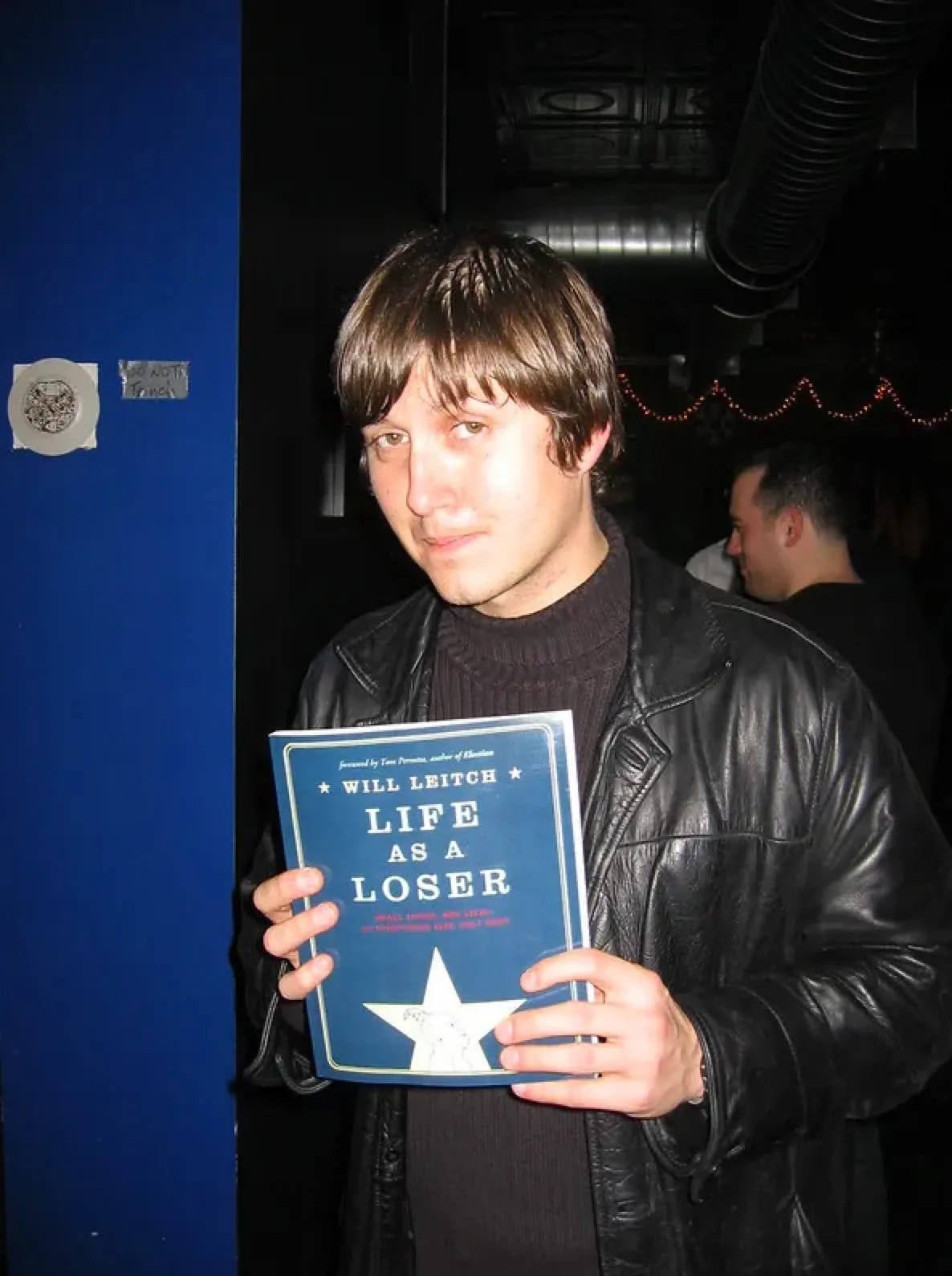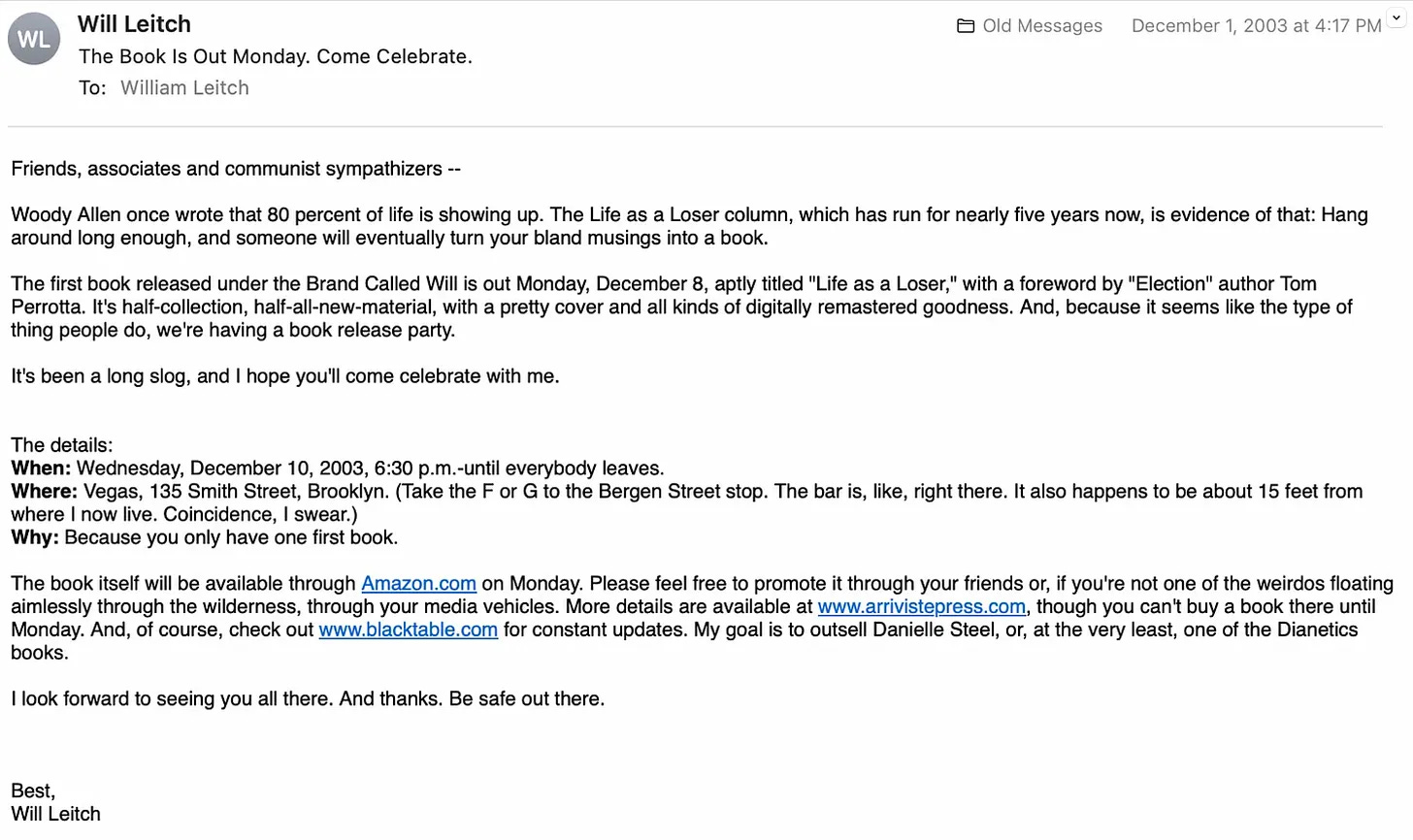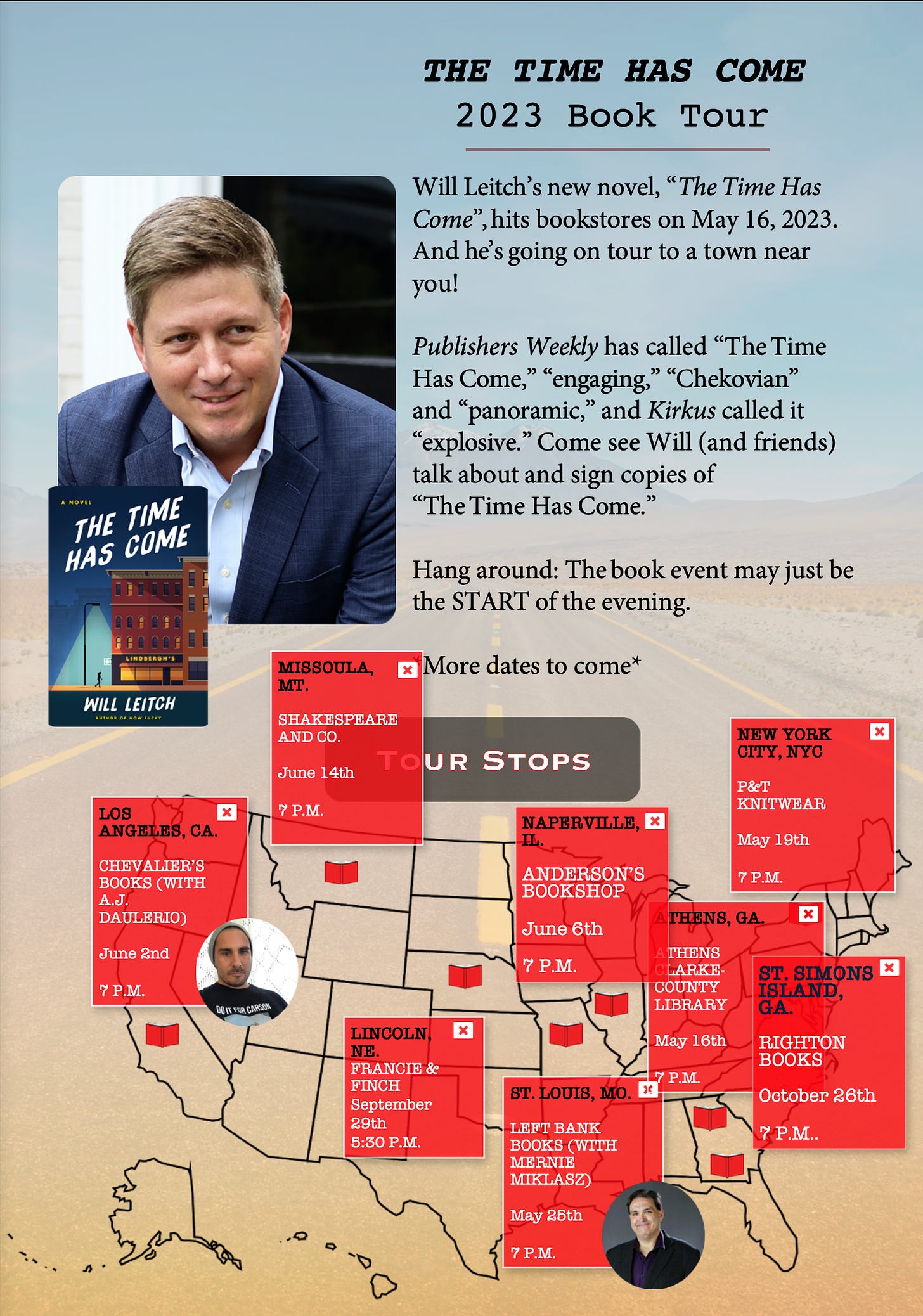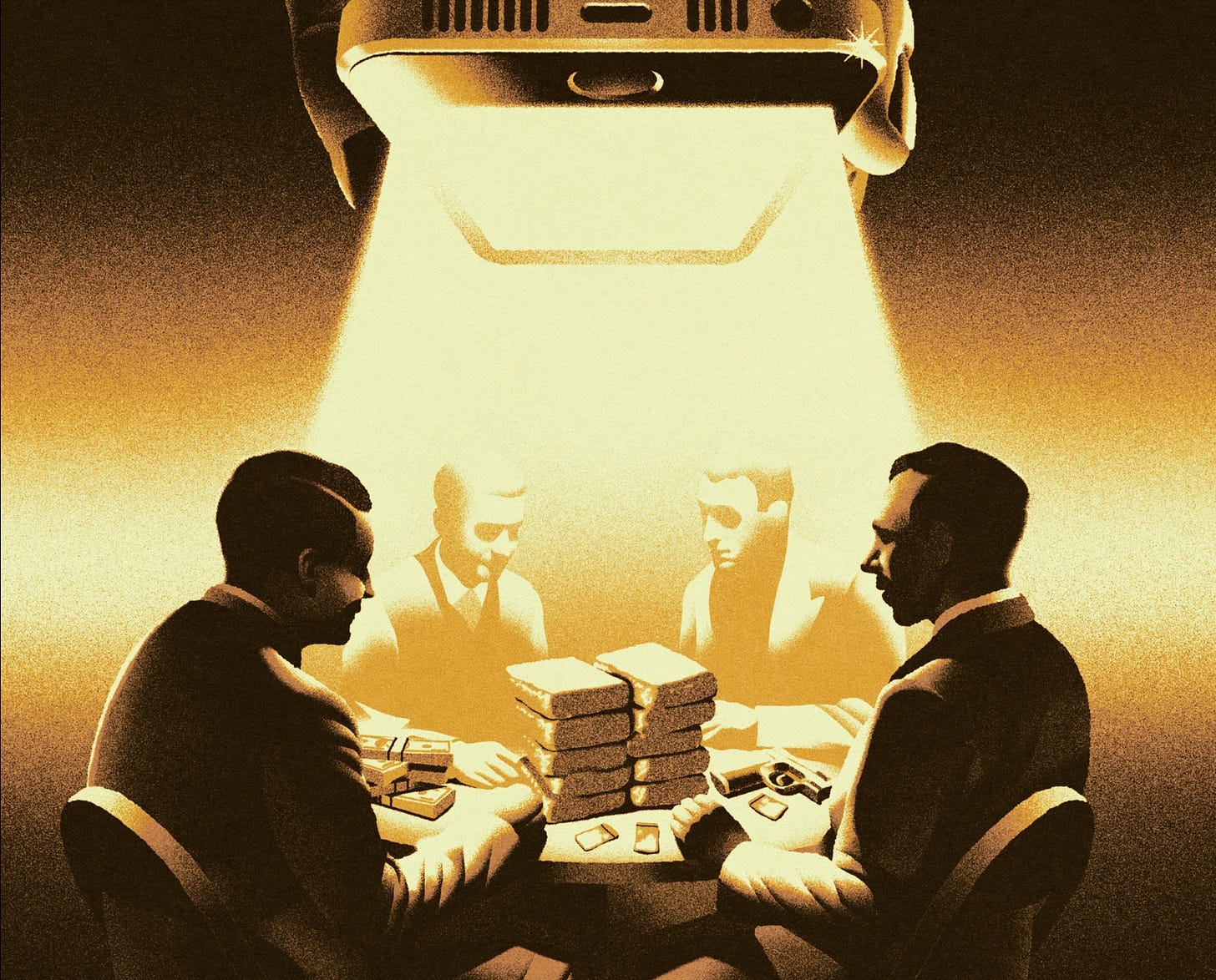Volume 4, Issue 65: Bud Smith
"He was never quite able to live up to that incredible initial promise."
Pre-order The Time Has Come, my novel that comes out May 16. I think you will like it. All pre-orders with proof of purchase enter the contest we unveiled last month. Hi.
There are little moments that change your life in ways you could have never anticipated, moments you don’t even notice when they are happening, moments you don’t appreciate the power of until years later. They are moments that set events into motion that will still reverberate decades into the future. They are moments where nothing is ever the same afterwards, no matter what you do.
I’ve had a few of these moments in my life, moments I still wrestle with the ramifications of on a regular basis. But it’s possible the most important one was the first one. The first one was the Iowa Tests.
Formally known as the Iowa Assessments, or the Iowa Every Pupil Tests of Basic Skills, the Iowa Tests were annual tests given to every public school student in the state of Illinois (and, presumably, Iowa) throughout the 1980s. The Iowa Tests loomed over the entire school year. The first half of the year was structured around making sure you learned everything the Iowa Tests would be asking of you; the second half was about preparing you for the act of taking the physical test itself. The entire curriculum of our grade school, of every grade school in the state, was structured around enhancing your ability to understand the basic principles the Iowa Tests would grade you on: Vocabulary, Word Analysis, Reading Comprehension, Listening, Language, Mathematics. The week of the Iowa Tests—which provided results that didn’t just test individual students but also structured funding for school budgets throughout the state, further emphasizing the magnitude of the tests’ importance—essentially shut most of Mattoon down: The Mattoon Journal-Gazette would run front page stories about how Iowa Test Week was here, Little League Baseball was postponed, parents put their kids to sleep an hour early. It was a big deal.
I didn’t think about any of this as a kid, because in the 1980s kids didn’t think about their future. You were too busy being a kid. The notion that Iowa Test Week would have any practical effect on my life would have been absurd to me as a 10-year-old. I was playing baseball; I was riding my bike; I was playing Nintendo. That was the expanse of my worldview. Not having to think about your future is half the point of being a kid.
But I was wrong. I did not realize it, but I was being sorted. I got good grades, and I didn’t think I was a dummy or anything, but what I was really good at—and still am—was taking tests. I was not anxious or concerned that I’d choke or anything like that. I considered tests oddly simple, even passive: You just sat there and answered questions. That was it. You didn’t have to do anything. You didn’t have to create, or invent, or really work much at all. You just sat there and answered the questions they had for you. (They had the hard part: They had to come up with all those questions!0 You answered the ones you knew the answers to, and you guessed at the ones you didn’t. It required no effort at all. It was an entirely reactive activity, and I was, and am, excellent at reactive activities. I was a catcher, and to me, it was just like catching: You just went to where the ball was thrown. I always nailed tests like that.
And, thus, after the Iowa Tests, that was what I was, to my school, to my parents, to my community and ultimately myself: I was The Smart Kid. I was not Will, the baseball player, or Will, Bryan and Sally’s kid; I was Will, the Kid Who Scored in the 99th Percentile. The minute those tests scores came back, my life changed. I—along with my friends Jame and Sarah, the other 95 percentilers—started getting taken out of class twice a week, shipped to a program across town called Project Extra for other “gifted” students around Mattoon. (This is where I would meet a kid from the Catholic school who looked like Paul from “The Wonder Years.”) Teachers started looking at me differently, treating me nicer, trying to get me involved in more school activities. My parents, who, I suspect, had always thought I was a little bit of a ding-dong who couldn’t figure out how to open the peanut butter or use a screwdriver now suddenly had evidence—solid, empirical evidence—that I had some sort of special talent and ability that now had to be fostered, protected and, more than anything else, prodded. Before, when I did something stupid or thoughtless, I was just a kid doing dumb kid stuff. Now? Now I was wasting what God had given me. After those tests, I was expected to achieve. I was expected not to disappoint.
So since then: I have tried not to disappoint. This led to, well, everything after that—for better and for worse. Once I had been taken aside as “special,” it drove everything moving forward. The time to be a heedless kid was over. I had to be great. I had to not squander what I had been “given,” what those test scores apparently revealed I had. I couldn’t waste it—whatever it was. I’ve felt that pressure ever since, that pressure to achieve, that pressure to justify. That test got me labeled a smart kid, a “gifted” kid. I am far from certain I actually was particularly “gifted.” But that was the expectation nevertheless, from then on.
These tests were much more destructive, though, for those who didn’t score highly on them, who weren’t inherently comfortable taking tests, who disliked being put on the spot and asked a bunch of questions. There were kids in my class who were whip-smart—certainly smarter than I was. But they didn’t score as well on the Iowa Tests. So they were no longer on an “accelerated track.” They were normal. They were average, or even considered less than that. How could they help but not think of themselves that way after that? How could they not internalize it? What opportunities did they miss because a part of them just didn’t think they were up for it?
From one test. From some Scantron sheets and sharpened No. 2 pencils. When were all 10 years old.
This has not stopped. I am sure it never will.
This week, my children have their Milestones tests. These are essentially the modern-day equivalents of the Iowa Tests, though surely evolved as the years have gone along, with teachers and administrators who perhaps better understand how to put them in context and use them for the kids’ better well-being. But there is no question about it: These tests can’t help but sort these kids. There are no newspapers announcing Milestone Test Week, and Little League Baseball is still going on as scheduled. But it’s a big deal. How could it not be?
And this time, the kids understand the stakes. Both my sons have been worried about Milestones for weeks. Wynn is worried his late baseball games won’t allow him to get enough sleep before the tests. William is scared he’s going to have to use the bathroom in the middle of the test. And they have talked to enough other kids—and started to have had themselves conditioned by a system already incentivizing them to begin thinking about how they stack up against other children that will someday be their competition—to understand how important Milestones are, how much sorting will happen, how much their lives will change as a result of this one test. I know that’s not the goal of these tests. I’m not even saying these tests don’t have some utility, in both the micro and macro sense. But this nevertheless is the biggest thing they do. They are the first step in slowly transitioning you from a heedless kid to a fretful adult.
My kids are nervous about the Milestone tests, and I’m trying to calm them. My strategy has been to try to explain to them that these tests aren’t tests at all. They’re simply an opportunity to show off what they can do, and should be approached as such: Look at what I can do! And while that’s true, and a good approach, I think, it’s also a little bit of a lie. These tests are more important than they should be, just like the Iowa Tests were, not because the tests are bad, and not because the people who administer them are bad, but because their results can’t help put pave a path forward for each kid who takes them—not least of all inside the kids’ heads themselves.
My kids are worried about the tests. They’re right to be. I will tell them the results do not matter, that they can be whatever they want to be, that they’re brilliant and capable of anything, no matter what the results say. And all of that will be true.
But I’m still also going to make sure they get plenty of sleep this week.
THREE WEEKS TO BOOK LAUNCH
That picture above is from my first-ever book event, the Life As A Loser launch party, at the long-forgotten Smith Street Brooklyn bar Vegas, held on December 10, 2003. I actually still have the invite I sent to my friends.
Forgive me. I was 28 years old.
Anyway, I drag you all through this Visit From Drunken Underemployed Brooklynites Past because today is the day we announce the The Time Has Come book tour. We may be adding some stops on this tour—and you can still email me if you’ve got a bookstore that fits in this schedule—but this is what we have nailed down. These events are all free to the public and, I’m betting, will likely all involve a bar for anyone who’s interested afterward.
May 16, 7 p.m.: Athens, GA. Athens Clarke-County Library, 2025 Baxter St.
May 19, 7 p.m.: New York City. P&T Knitwear. 180 Orchard Street.
May 25, 7 p.m.: St. Louis, MO. Left Bank Books (with Bernie Miklasz). 399 N. Euclid.
June 2, 7 p.m.: Los Angeles. Chevalier’s Books (with A.J. Daulerio). 133 N Larchmont Blvd.
June 6, 7 p.m.: Naperville, IL. Anderson’s Bookshop. 123 W Jefferson Ave.
June 14, 7 p.m.: Missoula, MT. Shakespeare and Co. 103 S. 3rd St.
September 29, 5:30 p.m.: Lincoln, NE. Francie & Finch. 130 S. 13th St.
October 26, 7 p.m.: St. Simons Island, GA. Righton Books. 222 Redfern Village.
There’s even a fancy graphic to go with this.
Again: We can, and will, still add to this, including from the ongoing newsletter contest. (We’re just about to nail down Austin.) But those right there are locked in. So if you’re nearby, please, please come. It’ll be fun.
Also, don’t forget to pre-order, and also don’t forget the playlist:
Here is a numerical breakdown of all the things I wrote this week, in order of what I believe to be their quality.
The Sports Gambling Ads Are Terrible and Will Get Worse, New York. I wrote two NYmag pieces this week, and I think they’re both pretty good.
Daniel Snyder, Like the Rest of Them, Will Always Get Away With It, New York. And here’s the other one.
The Most Unlikely Early Stars, MLB.com. Way to go, Patrick Wisdom.
I Did the MLB.com Power Rankings, That’s Always Fun, MLB.com. I think sometimes think this is my power rankings, rather than my writeup of the collective voters’ rankings. Alas.
The Thirty: Every Team’s Slow Starter, MLB.com. The Cardinals don’t have a lot of these guys, yet they keep losing.
PODCASTS
Grierson & Leitch, we discussed “Renfield,” but then we talked about two great movies: the documentary “De Humani Corporis Fabrica” and the Jonathan Demme classic Something Wild.
Seeing Red, Bernie and I are increasingly concerned!
Waitin' Since Last Saturday, no show this week.
LONG STORY YOU SHOULD READ THIS MORNING … OF THE WEEK
“Crooks’ Mistaken Best on Encrypted Phones,” Ed Caesar, The New Yorker. A super fun semi-true-crime story.
ONGOING LETTER-WRITING PROJECT!
This is your reminder that if you write me a letter and put it in the mail, I will respond to it with a letter of my own, and send that letter right to you! It really happens! Hundreds of satisfied customers!
Write me at:
Will Leitch
P.O. Box 48
Athens GA 30603
CURRENTLY LISTENING TO
“I Hate Myself and Want to Die,” Nirvana. I am not going to lie to you: This is one of my favorite Nirvana songs. Originally on the “Beavis and Butt-head Experience” soundtrack, it has one of the rare instances of what I like to call The Sarcastic Guitar. I legitimately believe the sound the guitar is making in this song is sarcastic.
Remember to listen to The Official Will Leitch Newsletter Spotify Playlist, featuring every song ever mentioned in this section.
Also, now there is an Official The Time Has Come Spotify Playlist.
A couple of William Bryan Leitches playing catch, with a dog in the middle. It’s springtime, folks.
Also: We have started doing a weekly Wednesday chat for anyone who wants to come by. Please let me know if it gets too annoying. It has been fun so far, though. So I’ll see some of you Wednesday.
Be safe out there …
Best,
Will









I'm looking forward to your stop in Lincoln. I had coincidentally pre-ordered from Francie and Finch a month ago. It's all coming together now. If I could only say the same thing about the Royals. Haha.
Will, I still remember Vegas because my friend was a co-owner and I put in about 70% of the mix CDs in their jukebox!